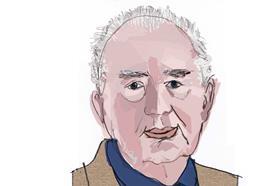It is interesting how crime has changed. My clients more or less followed the probabilistic predictions of Belgian statistician Adolphe Quetelet: January and February were for burglary. This was so serious that bail was difficult to obtain – burglary is hardly a crime today.

In the summer months they left London for seaside resorts, later Spain, for a spot of hotel theft, while in October came the hijack season for lorry loads of spirits and cigarettes. Also, there was more shoplifting to order. Orders fulfilled, a quiet period from early December – ‘I’ve got to have bail to be with the kiddies at Christmas’.
Fridays were for armed robbery when wages were paid weekly in cash. Protection, six-for-five loans and stolen cheques were year-round enterprises. Stolen goods were hawked around public houses. Controlled, relatively high-class street prostitution was beginning to fade away with the 1959 act. No longer could women be seen fighting for their corner of Coventry Street. Backstreet abortionists flourished. The drug trade as we know it did not exist. Three-card tricksters, along with pickpockets, worked on the streets, racecourses and dog tracks.
So where have they all gone? Bank robberies went with screens and technology, swingeing sentences and a fear of being shot by the police or grassed up by a fellow robber. Safer to invest in a drug run.
Chequebooks have been replaced by credit cards, and for the more sophisticated thief, there are phishing and all sorts of similar scams. There were no computers to be attacked. Following the Abortion Act 1967 and illegitimacy ceasing to be a stigma, backstreet abortionists were no longer needed.
Now we have people-smuggling and modern slavery. Underlying all this is the pre-eminence of the drug trade, with children and pensioners alike coerced by county-line gangs and financed by six-for-five loans on a grand scale. Crime abhors a vacuum.
James Morton is a writer and former criminal defence solicitor































No comments yet